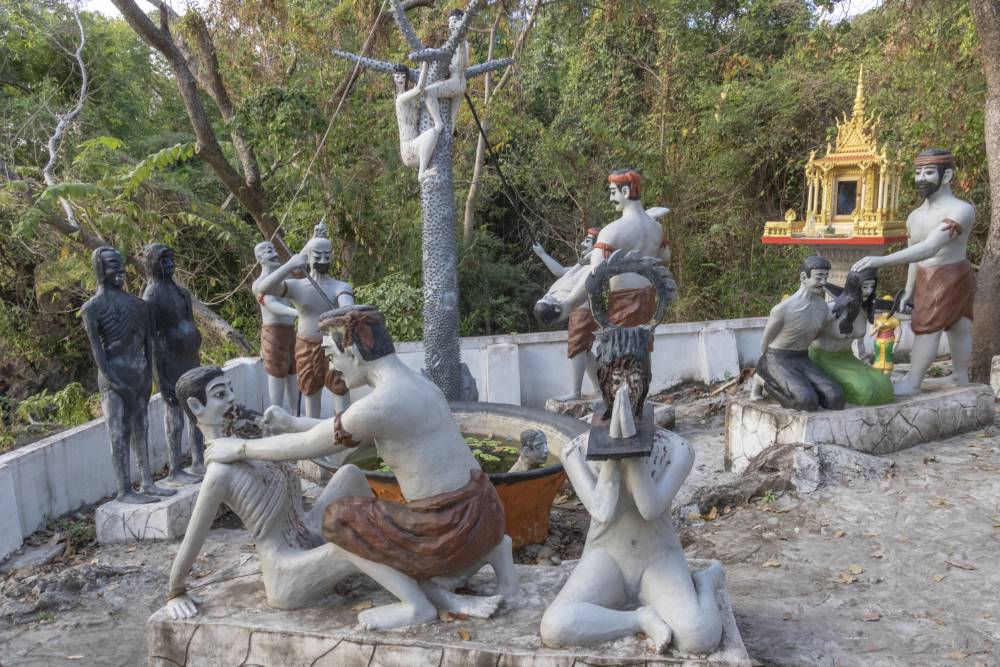

The Killing Caves of Phnom Sampeau stand as a stark reminder of Cambodia's dark history. Located near the city of Battambang, these caves were used as execution sites during the brutal reign of the Khmer Rouge from 1975 to 1979. The history of tourism in the area is deeply intertwined with Cambodia's efforts to remember and educate about the atrocities that occurred during this period.
The caves are set in a natural limestone hill on the slopes of Phnom Sampeau. During the Khmer Rouge regime, victims were brought here, bludgeoned to death, and their bodies cast into the open crevices. Over the years, the caves have been a place of remembrance, with human remains and clothes found on site serving as a haunting testimony to the past.
As Cambodia has opened its doors to tourists, the Killing Caves have become an important destination for those wishing to understand the country's history. The site has been developed for visitors, with pathways, stairs, and signage to guide and educate them about the significance of the site. Tourism at the Killing Caves serves as a history lesson and a somber reflection on the human capacity for cruelty.
A key feature of the site today is a glass-walled memorial stupa, housing the skulls and bones of some of the victims. This memorial serves as a poignant reminder and a place to pay respects. Informational tours are often available, providing insights into the historical context of the Khmer Rouge regime and the devastating impact it had on the country.
The approach to the Killing Caves is often combined with a visit to the top of Phnom Sampeau, which offers panoramic views of the countryside and includes a pagoda and a reclining Buddha. The natural beauty of the area stands in contrast to the tragic events it witnessed, and many visitors are moved by the juxtaposition.
In recent years, there has been a growing trend towards dark tourism, where travelers seek sites of historical tragedies or disasters. The Killing Caves of Phnom Sampeau fit this niche, attracting those who are interested in the sobering realities of history. Visitors seek not just the narrative of what happened, but also to honor those who suffered and to reflect on the importance of peace and tolerance.
Responsible Tourism is also on the rise, with tourists becoming more conscientious about the impact of their visits on such sensitive sites. There is an emphasis on educational experiences that promote understanding and respect for the history and the people who continue to be affected by it.
In summary, the Killing Caves of Phnom Sampeau are an essential part of Cambodia’s tourism offering, allowing visitors to confront the past, educate themselves about the Khmer Rouge, and pay respect to the victims. These caves serve as a solemn reminder, enabling us to reflect on history and the resilience of the human spirit.